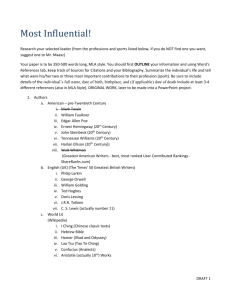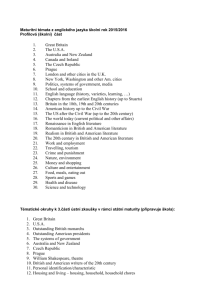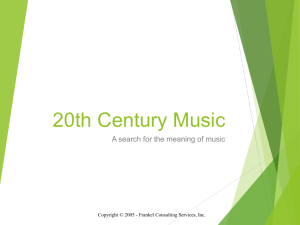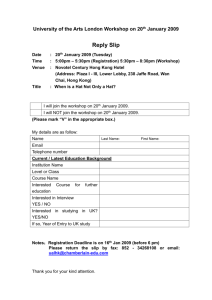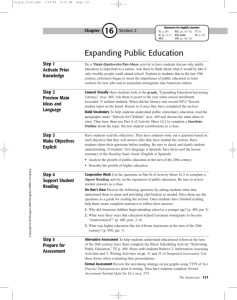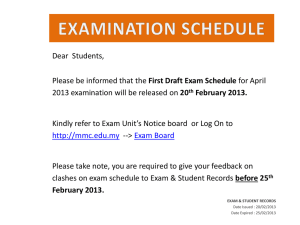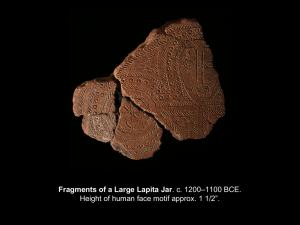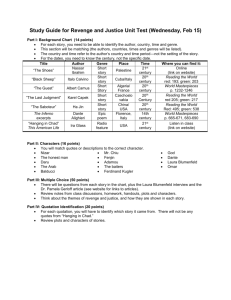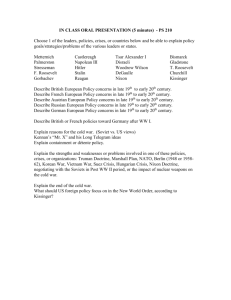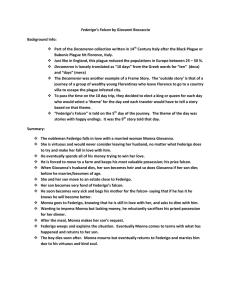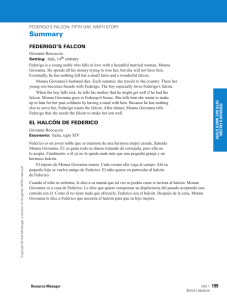Study for midterm
advertisement
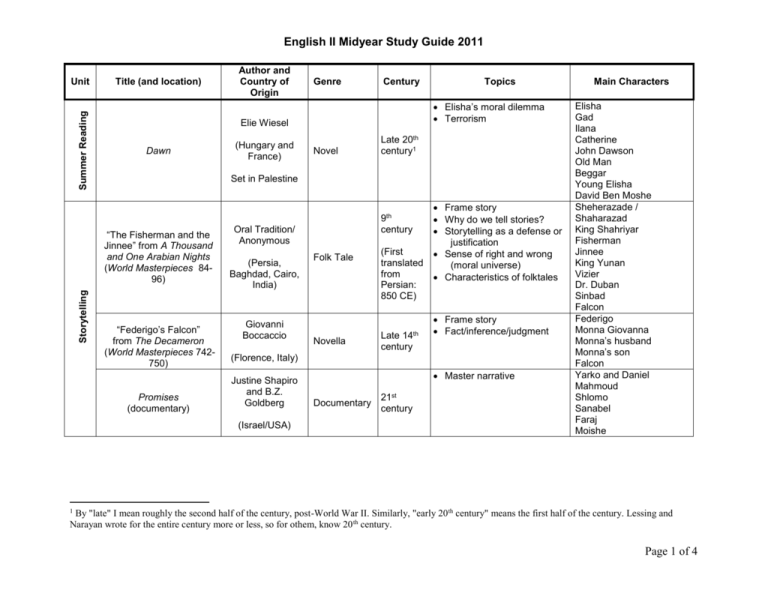
English II Midyear Study Guide 2011 Summer Reading Unit Title (and location) Genre Century Dawn (Hungary and France) Topics Elisha’s moral dilemma Terrorism Elie Wiesel Novel Late 20th century1 Set in Palestine “The Fisherman and the Jinnee” from A Thousand and One Arabian Nights (World Masterpieces 8496) Storytelling Author and Country of Origin “Federigo’s Falcon” from The Decameron (World Masterpieces 742750) Promises (documentary) 9th century Oral Tradition/ Anonymous (Persia, Baghdad, Cairo, India) Giovanni Boccaccio Folk Tale Novella (First translated from Persian: 850 CE) 14th Late century Frame story Why do we tell stories? Storytelling as a defense or justification Sense of right and wrong (moral universe) Characteristics of folktales Frame story Fact/inference/judgment (Florence, Italy) Justine Shapiro and B.Z. Goldberg (Israel/USA) Master narrative Documentary 21st century Main Characters Elisha Gad Ilana Catherine John Dawson Old Man Beggar Young Elisha David Ben Moshe Sheherazade / Shaharazad King Shahriyar Fisherman Jinnee King Yunan Vizier Dr. Duban Sinbad Falcon Federigo Monna Giovanna Monna’s husband Monna’s son Falcon Yarko and Daniel Mahmoud Shlomo Sanabel Faraj Moishe 1 By "late" I mean roughly the second half of the century, post-World War II. Similarly, "early 20 th century" means the first half of the century. Lessing and Narayan wrote for the entire century more or less, so for othem, know 20 th century. Page 1 of 4 English II Midyear Study Guide 2011 Storytelling (cont.) Unit Title (and location) “The Brave Little Tailor” (online reading) Author and Country of Origin Oral Tradition collected by Jacob and Wilhelm Grimm Genre Folk Tale Century Topics Main Characters folktales Tailor Giants King King’s daughter Achebe’s purpose in writing the novel Cultural Relativism Proverbs Rise and fall of Okonkwo Unoka Okonkwo Ekwefi Ezinma Nwoye’s Mother Nwoye Ikemefuna Ojuigo Chielo Agbala Ezeudo Obierika Uchendu Enoch Mr. Kiaga Mr. Brown Mr. Smith Distr. Commiss. Egwugwu Early 19th century Novel (Germany) Chinua Achebe Things Fall Apart Novel (Nigeria) Late 20th century Page 2 of 4 Unit English II Midyear Study Guide 2011 Title “The Moment Before the Gun Went Off” (Reading the World 333-339) Author and Country of Origin Nadine Gordimer (South Africa) Genre Century Apartheid Unreliable (biased) narrator Short Story Late 20th century Doris Lessing “No Witchcraft for Sale” (Reading the World 324-332) Masks “From Behind the Veil” (Reading the World 422-428) (Zimbabwe/ England) Dhu’l Nun Ayyoub Topics Short Story Late 20th century Short Story 20th Late century Why Gideon doesn’t give up his secret Relationship between Gideon and Farquars Teddy’s development Conflicting attitudes towards the veil and tradition paradoxes (Iraq) Truth “Like the Sun” (Reading the World 451-455) R.K. Narayan (India) “The Youngest Doll” (Reading the World 81-87) Rosario Ferré “Another Evening at the Club” (Reading the World 365-372) Alifa Rifaat (Puerto Rico) (Egypt) Short Story 20th century Short Story Late 20th century Short Story 20th Late century Magical Realism Role of women Women as objects (dolls) Gender roles in marriage Power structures Main Characters Narrator Lucas Van der Vyver Captain Beetge Alida Lucas’s mother Gideon Teddy Mrs. Farquar Doctor Ihsan Siham Siham’s father Veiled girls Unveiled girls Sekhar Sekhar’s wife Headmaster Aunt Youngest niece Doctor Young Doctor Dolls Prawns Samia Abboud Bey Gazia Page 3 of 4 The Odyssey English II Midyear Study Guide 2011 Homer The Odyssey Epic Poem (Greece) Late 8th Century BCE Telemakhos’ journey Athena’s intervention in Telemakhos’ life Relationships between gods and mortals Xenia, Kleos, Nostos Odysseus Penelope Telemakhos Athena Poseidon Zeus Nestor Menelaos Helen Agammemnon Lady Klytaimnestra Aigisthos Orestes Antinoos Exam Topics: I. Chart – Matching (Title, author, country, genre, century [you do not need to know “early” or “late”]) II. Quotation identification by title and/or character III. Multiple choice questions on the readings. IV. Vocabulary. Multiple choice. V. MLA Citations, quotation sandwiches, formal writing rules, how to write titles, quotation marks for dialogue VI. Essay (more details later) What to Study: Handouts of supplemental material, such as the “Escape and Interpretation” article Reading guides Reading Rewards Vocabulary Quizzes Class notes Notes written in books USE THE WEBSITE TO HELP YOU REVIEW! Page 4 of 4
